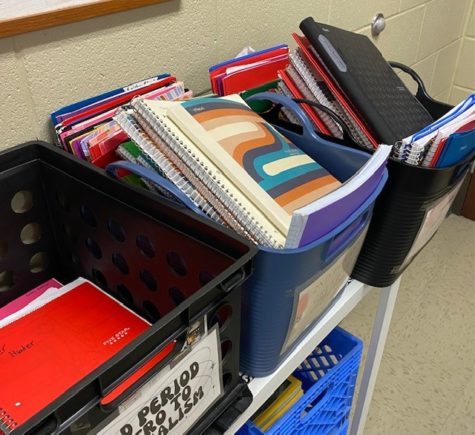Homework: Should there be more or less?
November 2, 2022
With less homework, students will be more engaged in learning in the classroom. Students will be more rested and focus more on what’s happening. Many students take part in extracurriculars within and outside of school, impacting their time and management to do homework. For example, when baseball season starts, many baseball players will be going to away games after school and getting back late that night. This gives little to no time for them to do homework. If students were to stay up and do homework, they would be tired for the next school day, making them less involved. It’s hypocritical for students to be expected to complete homework by the next day for all the classes they have when a teacher isn’t expected to have it graded the next day. Some may say, a teacher doesn’t have enough time to grade them, but the same can be said for students.

A junior from McCracken was asked if they thought homework helps them, and they replied, “No, homework doesn’t help. It’s not the same as they work from class, and there isn’t any help for it.” If a student has homework but doesn’t know how to understand it, will they still get a bad grade? Many students have stated the homework they receive doesn’t necessarily correlate to what they learned in class, making them even more confused. However, there shouldn’t be any homework. To end, homework does help students learn but only sometimes. There shouldn’t be homework every night and it shouldn’t be counted for accuracy.












